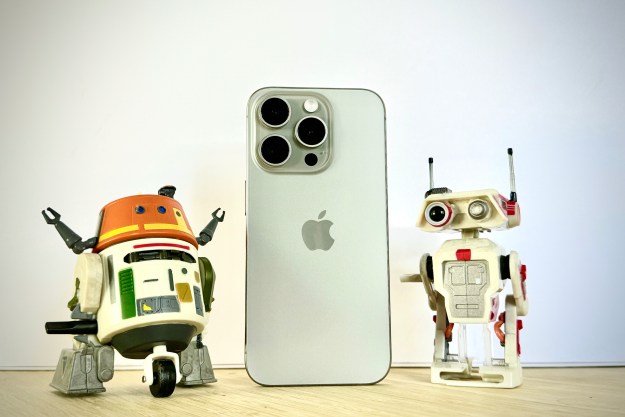
Mobile phones, we’re often told, are allegedly equally hazardous to our health. Cancer-causing, brain-frying, evil little devices we keep in our pockets. Yet we use them with reckless abandon, often for the most frivolous of things, and sometimes for hours at a time. Should phones carry a serious warning from the government, or even be ruthlessly outlawed?
We’re damn well not going to our phones up without some extremely compelling evidence.
Well, it depends on who you believe. Reports from scientists, medical professionals, and quacks of all kinds warn of the dangers. Yet a similar cross-section of the health community scoffs and says not to worry, there’s nothing to fear. All this arguing didn’t start yesterday either. It has been going on since phones were first freed from their wire restraints.
The trouble is, it’s now extremely hard to care. Conflicting medical reports have become so tiresome, we don’t really pay any attention, and those which do catch our eye are often written by someone who also gives lectures about the scourge of chemtrails in their spare time. However, the main reason we skip past the news of cancerous cells and on to carcinogenic celebrities, is because the phone has become an almost invaluable part of modern life; and we’re damn well not going to give them up without some extremely compelling evidence.
Is there any? Let’s take a look.
Phones aren’t bad for us
Let’s hop in the DeLorean, and have a little time-traveling adventure through the exciting history of medical research related to phones and potentially life-ending conditions – specifically seeking out those which exonerate our beloved gadgets. For the first example, we don’t even need to fire up the Flux Capacitor.
In December 2014, the University of Manchester published a study saying the magnetic fields created by phones and power lines don’t cause health problems. Apparently, research showed these fields have no affect on flavorproteins in our bodies, which was previously believed to cause all sorts of hideous problems. It’s a good start, but let’s go back further.
At the beginning of 2014, details from an 11-year research program were published, and found no evidence using mobile phones increased the risk of developing cancer. At the beginning of 2013, a UK study carried out by epidemiologists at Oxford University concluded “Mobile phone use was not associated with increased incidence of glioma, meningioma, or non-CNS cancers.” The study examined more than 700,000 people.

In 2012 research carried out in Scandinavia found no evidence of “a change in the incidence of brain tumors over the past twenty years.” Staying in Europe, research in Denmark published in 2011 stated phone users were at no more risk of brain cancer than anyone else, after observing more than 350,000 people over eighteen years.
Our final stop is at the American Cancer Society, where although it stops short of saying phones are safe, it does spend a lot of time listing studies which say exactly that.
Lovely, that’s us convinced.
Yes they are
Except many people won’t be convinced, because for every study that clears our phones, there’s another that makes them out to be Satan’s plaything. In 2011, the World Health Organisation placed mobile phones in the same cancer-causing category as lead, engine exhaust fumes, and chloroform. In the same year, a U.S. study noted a correlation between an increase in brain tumors and phone subscriptions, saying it was serious enough to warrant further evaluation.
It could be slowly killing us; but the clear, genuine positives outweigh the possibility of a negative.
Moving forward to 2012, a court in Italy ruled that prolonged use of a phone had caused 60-year old Innocente Marcolini’s brain tumor. In 2013, a small study carried out in Israel said that using a phone for as little as 20 minutes a day could increase the risk of developing cancer. In mid-2014, a French report linked people who use mobile phones for at least 15 hours per month, over an extended period, with a higher chance of ending up with brain cancer.
Head outside of the scientific community, and things get a bit more scary. You can read articles comparing phones to cigarettes, and about doctors at cancer institutes warning staff to limit phone usage because of the possible risks. There are even documentaries and websites saying telecoms companies are covering up the dangers, just like big tobacco sweeps aside the dangers of cigarettes.
Like cars, we don’t care because they’re much too helpful
This list of examples is by no means exhaustive. You can search for hours and find more research reflecting both sides of the argument, and then get further confused by no-one agreeing on whether so-called “electrosensitivity” – which could actually explain some of the problems – is a real, and not a purely psychosomatic, condition.
If you’re a believer, there are $50 radiation-reducing phone cases for sale in a variety of stores, and advice on adding more melatonin, zinc, and ginkgo biloba (yes, really) into diets to reduce the damage done by the ever-present smartphone.
However, for the rest of us, the phone in our pocket is now like the car on our driveway. We don’t care if it’s dangerous, because it’s too helpful. It could be slowly killing us; but the clear, genuine positives outweigh the possibility of a negative, no matter how debilitating. It doesn’t matter whether you’re a chain smoking, adrenaline-junkie downing 10 pints on a Friday night, or a more careful version of Howard Hughes; the mobile phone probably doesn’t even make the top 10 list of things you avoid like the plague.
Let’s face it, our smartphones are now family, and not even the plague could get in the way of that all-important Snapchat message. The medical world can carry on publishing its studies, but all the inconclusive bickering means a lot of people have stopped listening, and even caring, about the results.




